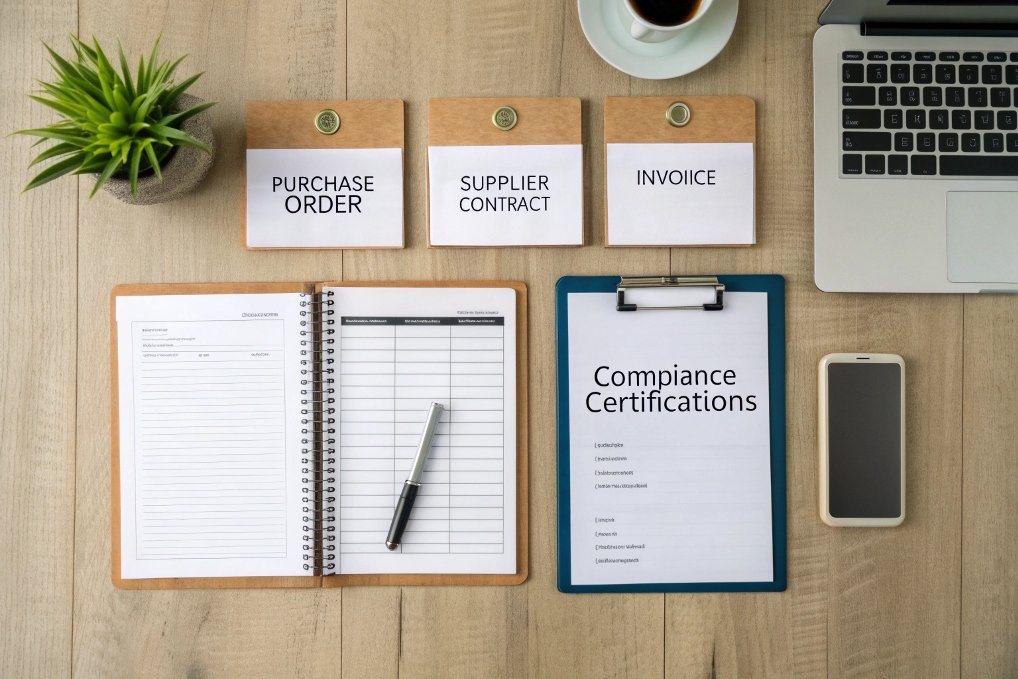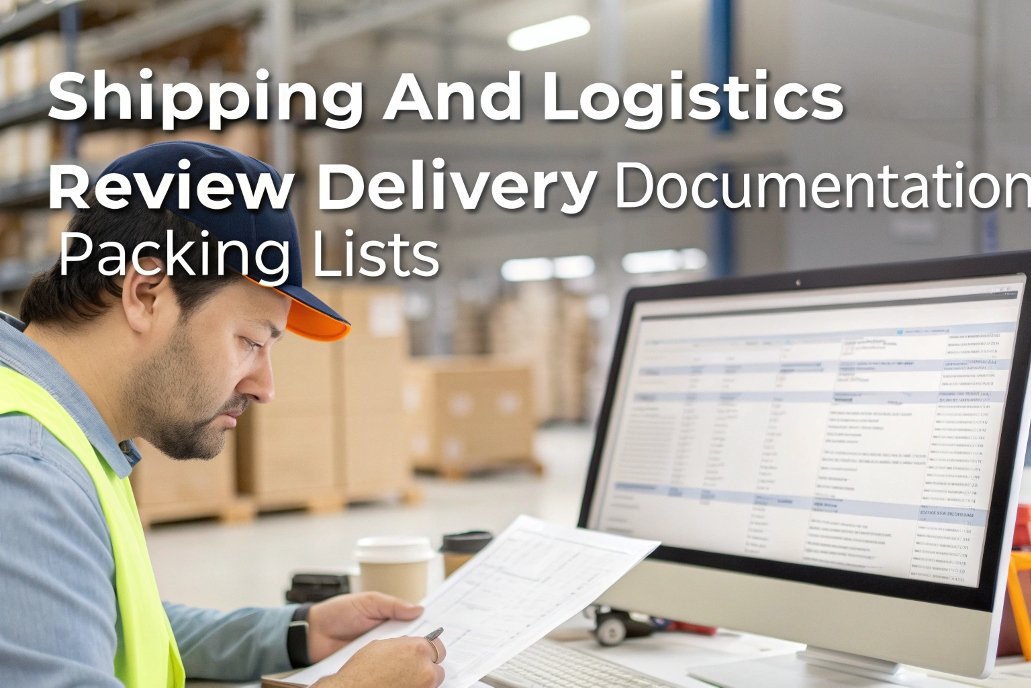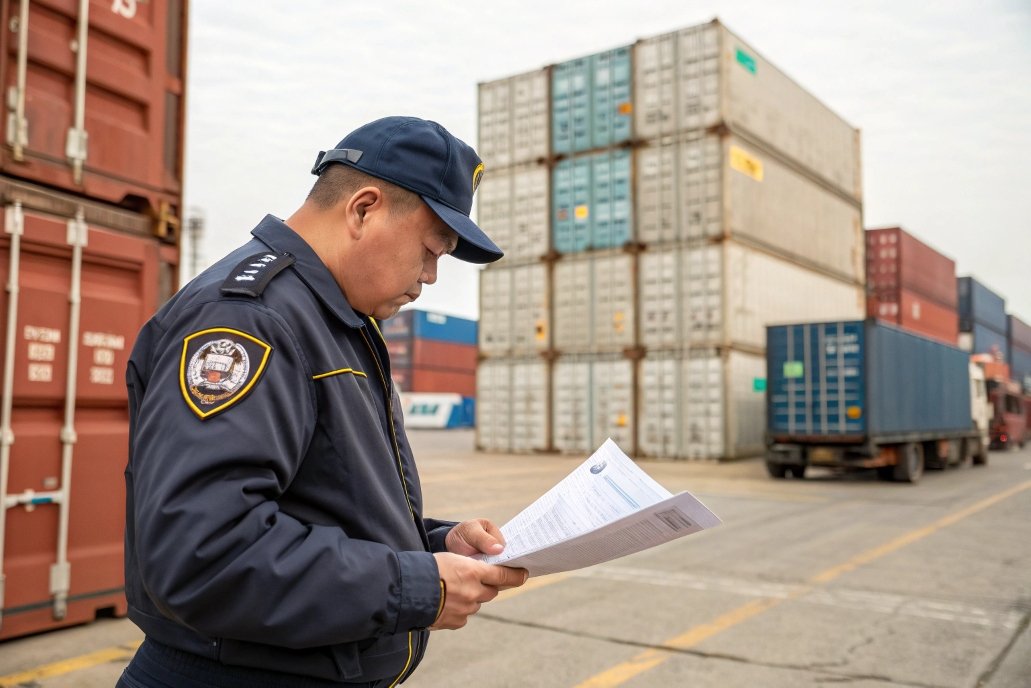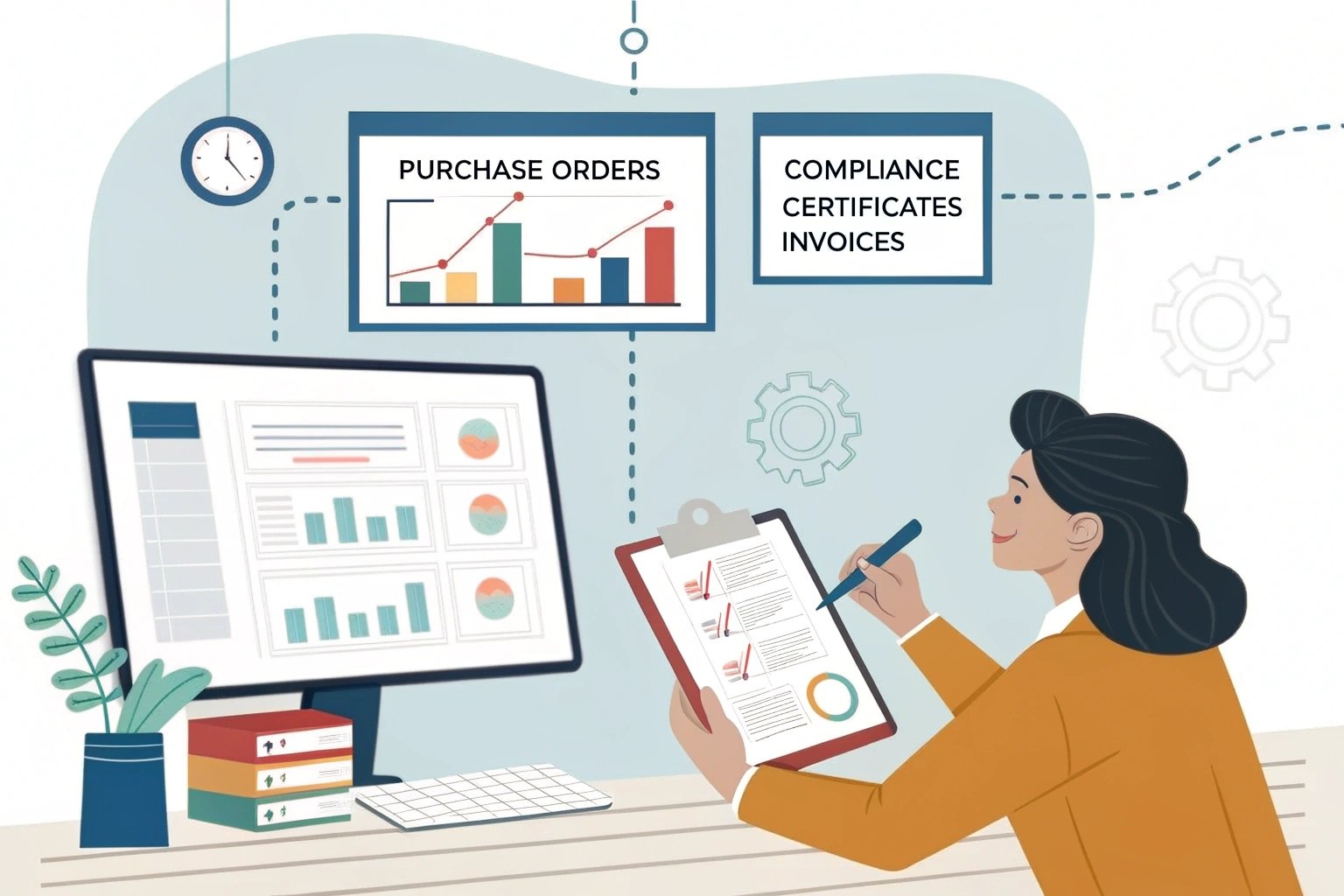
When sourcing custom parts, documentation might not seem like the most exciting aspect of the process, but it is undeniably crucial for smooth operations. I’ve learned this firsthand—having the right documents in place can save you a lot of time, money, and hassle down the road. Without them, you risk facing delays, compliance issues, and even legal complications. Let me walk you through why documentation matters and how to ensure you’re covering all the bases.
Proper documentation for custom parts orders1 is essential for smooth operations, ensuring compliance, and facilitating customs clearance. The right documents help maintain transparency, avoid costly delays, and ensure that all parts meet regulatory requirements.
When I first started, I underestimated the importance of having solid documentation in place. However, over time, I realized that it wasn’t just about keeping records—it was about ensuring everything ran smoothly. If you’re sourcing custom parts, this article will help you understand why proper documentation is key and how you can stay on top of it.
What Types of Documentation Should You Keep for Custom Parts Orders?

The right documents ensure that your custom parts orders meet all legal, regulatory, and logistical requirements, which ultimately helps streamline your operations. Here’s a breakdown of what you should keep for each order.
Key Documents to Keep for Custom Parts Orders
| Document Type | Why It’s Important |
|---|---|
| Purchase Order (PO) | This outlines your order details and serves as the basis for all transactions. It ensures clear communication of your requirements. |
| Supplier Contract | This formal agreement establishes the terms, pricing, timelines, and responsibilities of both parties. It prevents future disputes. |
| Invoice | Acts as a record of the financial transaction between you and the supplier, and it’s often required for customs clearance. |
| Shipping/Delivery Documentation2 | This includes tracking numbers, delivery receipts, and packing lists that ensure all parts arrive on time and in the correct quantities. |
| Compliance Certifications3 | Certifications related to industry standards, safety regulations, or material specifications to prove that the parts meet necessary requirements. |
| Customs Declarations | Required for international shipments, these documents ensure the parts pass through customs smoothly and adhere to all import/export regulations. |
Why Documentation Matters: A Personal Experience
When I first started sourcing custom parts, I learned the hard way that not having the right documents at hand could cause unnecessary delays, especially with international orders. Missing an invoice or not having the right certification for customs can lead to fines or delays at the border. Now, I ensure I have a solid paper trail for every order, no matter how small. It gives me peace of mind and ensures I’m always prepared for any situation.
How Can You Ensure That All Relevant Documents Are Available for Customs and Compliance?

For international orders, proper documentation is vital for smooth customs clearance and compliance with import/export regulations. You must make sure that all the necessary documents are in place well ahead of shipment.
Steps to Ensure Proper Documentation for Customs
| Step | How It Helps |
|---|---|
| Work with a Reliable Supplier | Choose suppliers who understand the customs process and can provide all necessary documents on time. |
| Verify Compliance Requirements | Make sure you are familiar with the regulations for both your country and the supplier’s country to avoid mistakes in documentation. |
| Use a Freight Forwarder or Customs Broker | These experts can assist in ensuring all customs documentation is in order, reducing the risk of delays or fines. |
| Double-Check Documents Before Shipment | Review the paperwork, including invoices, PO, and compliance certificates, to ensure everything matches and is accurate. |
| Track Shipments and Documentation | Keep a copy of all shipping documents and track shipments to avoid any last-minute issues during delivery. |
My Approach to Ensuring Documentation for Customs
When I started sourcing internationally, customs issues were a huge pain point. There were times when shipments were delayed because of missing documents or unclear paperwork. I soon realized that partnering with reliable suppliers who were familiar with international shipping made a massive difference. Working with a good freight forwarder also ensured that I wasn’t fumbling through paperwork during critical moments. Now, I make sure that everything is double-checked before the shipment leaves the supplier’s factory.
Why Is Documentation Critical for Smooth Operations in Custom Parts Sourcing?

Documentation isn’t just about paperwork—it’s an essential tool for managing risks, ensuring compliance, and streamlining your entire sourcing process. Without proper documentation, the entire operation can be thrown into chaos.
Why Documentation is Critical for Operations
| Reason | Benefit |
|---|---|
| Risk Management | Proper documentation helps mitigate risks related to non-compliance, delays, or legal issues. |
| Customs and Compliance | Documents like certifications, invoices, and customs declarations ensure smooth international trade and avoid costly disruptions. |
| Transparency and Accountability | Keeping accurate records helps build transparency between you, your suppliers, and any third-party partners involved in the logistics process. |
| Dispute Resolution | In case of any disputes with suppliers or shipping delays, documentation serves as the evidence to resolve issues quickly and fairly. |
Why I Now Prioritize Documentation
Over the years, I’ve learned that documentation is not just a box to check off—it’s a tool that keeps everything organized and running smoothly. I’ve been in situations where delays and disputes could have been avoided with the right documentation. Today, I make it a point to keep everything in order, from initial orders to final delivery receipts. This proactive approach has saved me from costly mistakes and unnecessary stress.
Conclusion
Proper documentation is a critical part of sourcing custom parts. From purchase orders to compliance certificates, the right documents ensure smooth operations, minimize the risk of delays, and help maintain transparency throughout the entire process. Whether you’re dealing with customs, suppliers, or logistics partners, having all the necessary paperwork in place is essential for keeping everything on track. Always make sure you double-check and stay on top of documentation requirements to avoid any surprises along the way.
Understanding the significance of proper documentation can help you avoid costly mistakes and ensure smooth operations in sourcing custom parts. ↩
Learning about shipping and delivery documentation can streamline your logistics process and ensure timely delivery of your custom parts. ↩
Exploring compliance certifications can help you ensure that your custom parts meet industry standards and regulations, preventing legal issues. ↩

